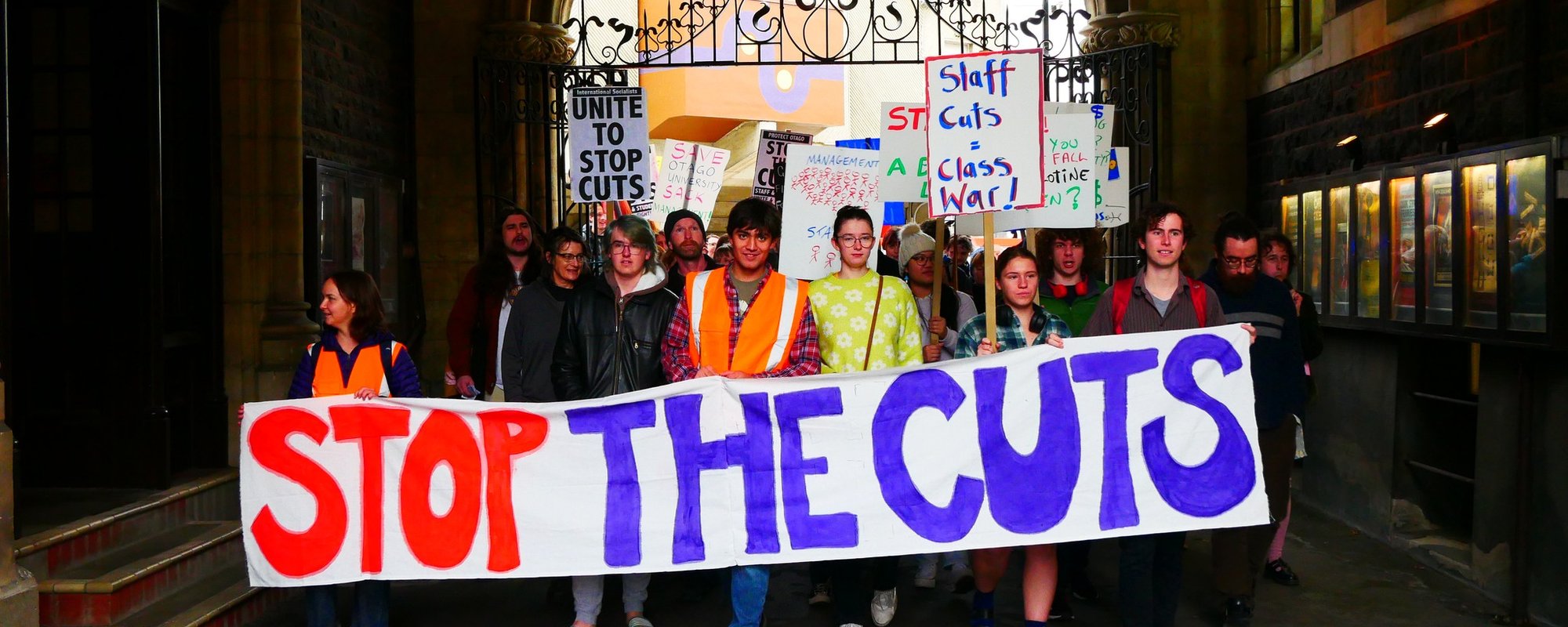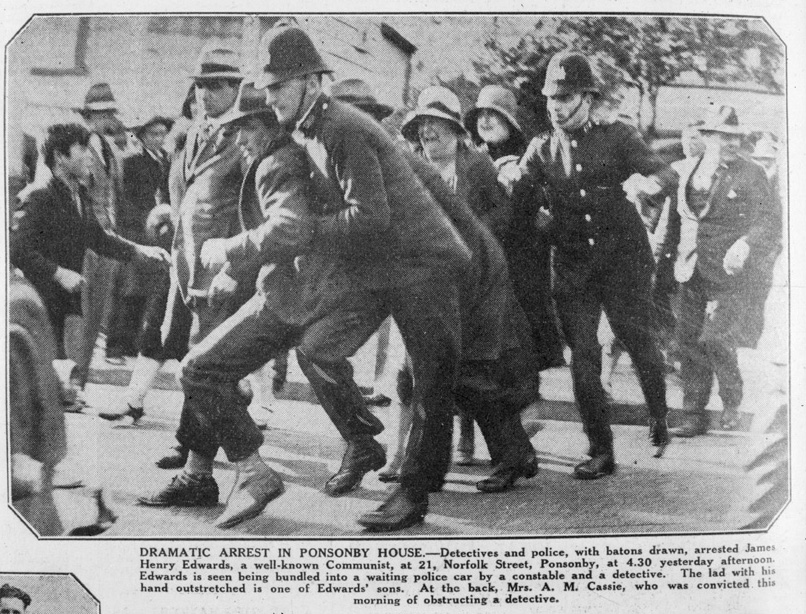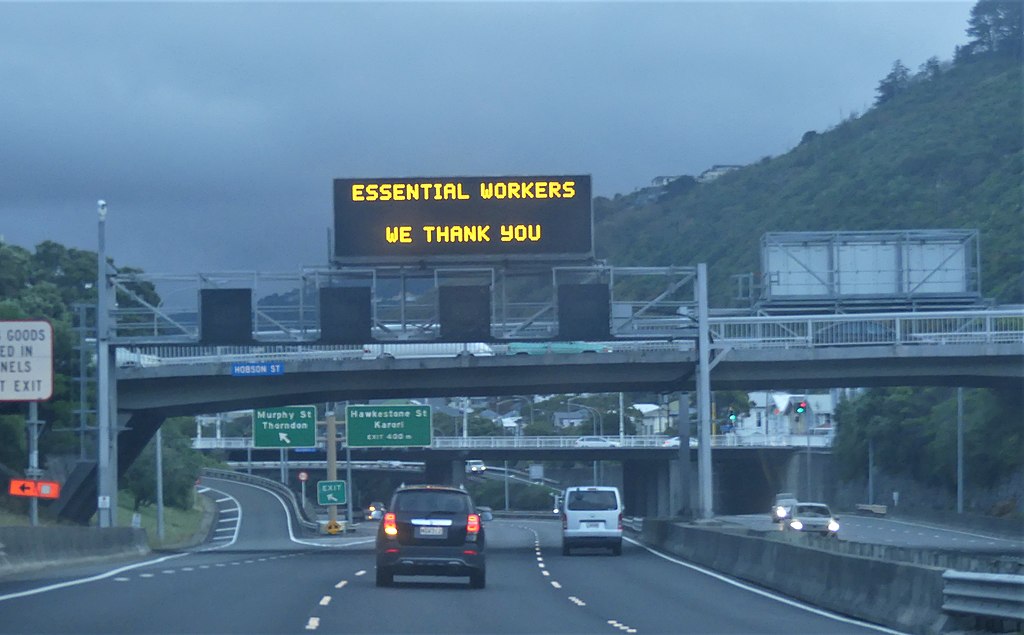Ever wonder about the days when universities were free and not run as a business? When the social welfare safety net was available to all that needed it and could sustain a decent living? When the government worked towards a goal of total employment, not enabling a system that requires unemployment to function? When vital services were owned by the people, serviced the people and could subsidise each other? When employment was secure, people were trained and skill bases maintained instead of short term contracting? Not all of this was benevolent, of course; some of it suited the needs of capitalism at the time, and others parts had been won only after long battles by workers. But it is a stark contrast with today’s world of debt, privatised services and shortages in areas, like housing, of crucial public need. New Zealand before neoliberalism was no paradise, and workers, women, Māori and migrants had to fight hard against Muldoon’s converative government. But the neoliberal transformation was in the interests of the rich, and serves them to this day.
One event, person or condition cannot be solely blamed for the introduction of neoliberalism into New Zealand – like most things in history, it was a perfect storm coming together that allowed it to take hold and run rampant. However, one group holds much more responsibility than others for allowing it to occur and not stopping, or at least tempering it when it had seen the outcomes. That group is the Fourth Labour Government.
In 1984, a snap election was called by National Prime Minister Robert Muldoon. His third term government was growing increasingly unpopular with the public, the economy was in a so-called crisis and the seas of change were on the horizon. The Labour Party campaign ran on social, anti-nuclear, and Treaty of Waitangi issues. Their manifesto and campaigning had no real mention of the brutal economic reform that would be forced on the population. In fact, many candidates had little insight into economics, something the right was able to use against any lingering left-wing doubts in MPs minds.
In the background of all this political turmoil, Treasury had been flooded with Chicago School economists and business elites. Tired of being ignored by Muldoon and having to compete with the Ministry of Works for attention, and helped by the Business Roundtable lobby group, Treasury set about its plan to open up New Zealand’s economy to the free market. Going behind the government’s back in a pretty unconstitutional move, Treasury had been espousing their ideas to Labour MPs. Unfortunately for the public, one MP took these ideas hook, line and sinker: Roger Douglas.
Once the election was won by Labour, Douglas, with his handbook from Treasury, acted swiftly. This economic experiment, with theories never tried let alone proven anywhere else, was forced on the public as the only answer to New Zealand’s economic troubles. In fact, this was the only plan ready to go and had a squad of cheerleaders to chant its virtues. If time had been taken to consider alternatives, New Zealand could have avoided a lot of social and economic harm. With lightning pace, financial deregulation was rolled out and New Zealand was opened up to the free market. This set the stage for massive spending cuts on social services, the introduction of GST, personal and corporate tax rate reduction, and relaxing of labour laws. State assets (banks, infrastructure, communication etc.) were converted to State Owned Enterprises (SOEs), run as businesses ready for sale, then partly or wholly sold for short-term gain. Education reform on all fronts, including the introduction of student fees. Redundancies were high, as well as the newly minted CEOs’ pay. All of this was done with no regard to the real life social consequences.
A change in government to National in 1990 did not stem the damage. If anything, Labour had opened the floodgates. There was further sell off of SOEs, benefit rates slashed, and more education reform – universal student allowances were scrapped, and an insidious loan scheme introduced. The Employment Contracts Act was introduced, removing workers’ rights and blunting unions. The health system was restructured to run like a business where efficiency was prized over all else. State housing rents were raised to market levels, now run by an uncompromising Housing New Zealand. Local government’s power was curtailed and assets stripped, now with final approval given to CEOs rather than elected officials. This was just the tip of the iceberg. The list goes on, the cherry on top being the Fiscal Responsibility Act. Treasury had to make sure all of its work and power it had gained could not be undone. The Act made it extremely difficult for any government to turn back the clock on any of this mess.
The galling thing about this experiment was the absolute refusal to look for alternatives, carry out the reforms in a more logical order, or even to take the foot off the gas and see how things played out as each piece was put into place. Nobody in the upper echelons of government or Treasury cared for the social destruction their policies were causing, only the financial outcome that would take ten years before any minimal payoff was seen. You can see why. From the incestuous web of Treasury officials and Business Roundtable figureheads handing out cushy CEO positions in the newly-formed SOEs to known business associates (or in some cases getting them themselves) then preparing the SOEs for sale, using expensive consultancy firms with links to the above parties. The SOEs were then sold to the very companies in which the above people had a personal financial stake in. Their true motivation was not for the people of New Zealand; it was greed.
There is more to tell in this story, and there were alternatives. A concentrated fightback by the union movement could have thrown up real challenges to the government. Dissent within Labour’s ranks over the government’s direction was so great that, in 1989, Jim Anderton’s split away took a good proportion of the active base. So there could have been another way. Why there wasn’t is a story for another article.
Why does this history matter now? Following the 1990-1999 National government, Helen Clark’s next Labour government denounced Rogernomics as “a ghastly period” but did very little to make any meaningful change. Likewise our current government led by Labour Prime Minister Jacinda Ardern has talked about fairness and wellbeing, but aside from minimal tinkering at the edges of problems has done very little. While every reform is welcome, to make New Zealand a truly fair country bold steps must be taken. The New Zealand Labour Party must apologise for the past harm it has caused the people of Aotearoa and make a genuine effort to fix said harm. To simply hide behind platitudes, coalition excuses and take a business-as-usual approach is not good enough. The work to make meaningful change will be hard, as any positive steps under the capitalist system we live under will inevitably be pushed back against by those with a vested interest in the status quo of inequity and despair. However, they must be taken. Treasury, the grand architect of the scheme, must be disbanded or reformed from the inside out, the Public Finance Act repealed, the Employment Relations Act repealed, and worker and union power strengthened. Assets must be renationalised, the Ministry of Works reinstated, and social welfare brought up to a fair and liveable level and available for all. Student loan debt must be wiped, all education made free, and universities stopped being forced to run as a business – plus so much more. Even just one of these things would show the downtrodden public a sign of hope that the Labour Party can stop reneging on promises, turn away from sucking up to businesses and the bourgeoisie class. Labour must put in the hard work, live up to its party name and seriously help the working class for the first time in forty-five years.
Labour’s reforms under Ardern have accepted all the limits imposed by the dominant way of thinking. Housing, for example, must not challenge the supremacy of the market. Farming profits slow down action of climate change. Help for the working class will only come if we organise for it independently, and challenge the logic accepted across the political spectrum.








